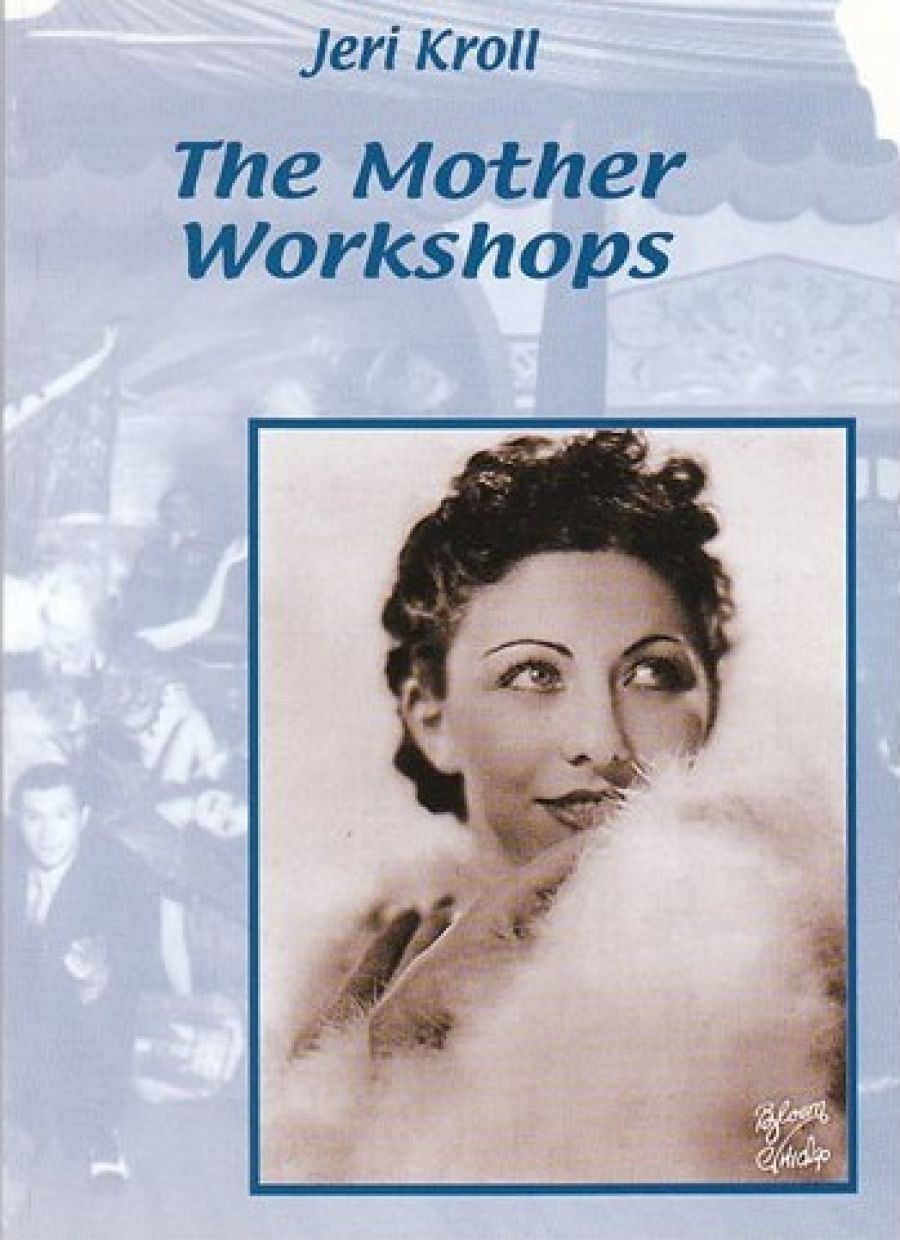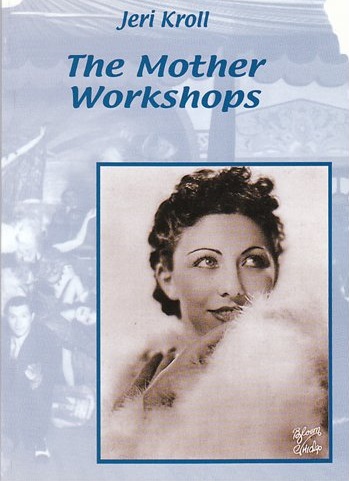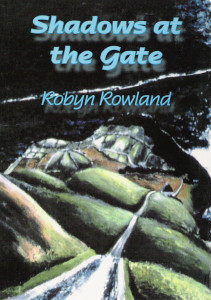
- Free Article: No
- Contents Category: Poetry
- Review Article: Yes
- Article Title: Thinking Out Loud
- Online Only: No
- Custom Highlight Text:
Robyn Rowland and Jeri Kroll write what you might call anecdotal poetry: simple, intimate and direct. Kroll, for instance, writes about her dogs, doing her taxes and sleeping in, with the sketchy, conversational tone of someone thinking out loud: ‘Does age smell? The older the dog grows, / the more he smells like a labrador, / though he’s a border collie and blue heeler.’
- Book 1 Title: The Mother Workshops and Other Poems
- Book 1 Biblio: Five Islands Press, $18.95 pb, 82 pp
- Book 1 Cover Small (400 x 600):

- Book 1 Cover (800 x 1200):

- Book 2 Title: Shadows at the Gate
- Book 2 Biblio: Five Islands Press, $18.95 pb, 100 pp
- Book 2 Cover Small (400 x 600):

- Book 2 Cover (800 x 1200):

At times, the pleasure of reading Kroll’s and Rowland’s poetry is akin to the pleasure of reading someone’s diary. It seems almost voyeuristic, for instance, to find out so much about the failure of Rowland’s love affair with an Irish Catholic priest in her sequence, ‘Last Poems Before the Eclipse’:
You said ‘I love you,
now I have to decide what to do.’
I don’t think prayer was helping
until you went back
to the amber stone of the Abbey walls,
so clear, so distinct, so definite.
‘Here have I made my place’ you quoted me.
Of course, there’s a great deal to be said for the pleasure of reading someone’s diary, particularly when it’s as well-crafted as this; and Rowland’s readers have been waiting more than ten years for this instalment, since they first heard about the love affair in her collection Perverse Serenity (1990). So, if the poems are not so much events as the record of events, they are nonetheless fine, engaging records.
The story has its mythic potential – an unattainable man in a stone abbey – but it’s the small events and daily facts that interest Rowland: ‘I can’t hear your laugh / or smell that particular aftershave that sang / of a life in the flesh / you were denied in priesthood.’ Both Rowland’s and Kroll’s poetry is often described as honest because it records life from this particular point of view: uncertain, in the midst of things and wondering. They rarely use irony, for instance, and they don’t make cool allusions. They write, in fact, as if they’d never heard of pop culture. In some ways, this limits their poetry. At times, it seems to miss the exactitude and scope that detachment can bring. When Rowland writes of being ‘loved by someone warm, and dark, and tall’, for instance, we can only suppose that he isn’t handsome.
And yet, immediacy is the great strength of their poetry. When Kroll writes in ‘Ten Things You Can Do With Your Son’s Room Now That He’s Left Home’, ‘2. Meditate on his chair / although bits of home-grown weed / stick to your pants and beer / exhales from the lumpy seat’, the poetry has an amicable openness that is immensely engaging.
In fact, these collections suggest that both Kroll and Rowland treat poetry as a way of paying homage to daily things. This is a poetry that argues for, and frequently justifies, a rapturous approach to life:
Rolled and rubbed smooth by the sea:
emu eggs of stone by the thousand,
striped and spiralled with quartz,
jet black striated mauve and white
or mottled marble, pink and green like the bellies of trout.
So smooth and seamless, they crowd the beach
Piled higher than the surf, no two the same.
‘Like people’ we say,
yelling to each other across the rocky shore
‘look, look here’, another beauty
even more amazing than the last …
This exulting poem is subtitled ‘October 10, 2001. After Anthrax in Florida’. Rowland has a sequence of poems like this, delighting in a life in rural Ireland but tracking at the same time the terrors of life after September 11. They are memorable because the rapture in them is something conscious, something achieved: ‘In this is grained our struggle / to hold back the advance of fear. / Here is our front line: beauty, normality, / the collecting of stray gems, the lighting of fires.’
Kroll’s long sequence of poems about her mother in ‘The Mother Workshops’ deals with more intimate terrors: old age, nursing homes and Alzheimer’s. The poems in this sequence are numbered exercises in different forms, from prose memoir to sonnet, free verse and villanelle. They are deliberately tentative, often starting or ending with questions. At one point, Kroll remarks, with characteristic candour: ‘This is my way of making you survive, asking the unanswerable questions.’ So Kroll avoids striking effects. And yet, with their wry observations, details and stories, these poems have a cumulative power. Take her reflections on the philosophy of chocolate, for instance:
But finally, there were tender mercies. I discovered the transcendence of chocolate. I could bring it as a gift and know it would be greeted with a moist mouth. I could watch my mother puzzle over which mottled Belgian seashell to select before she let one dissolve, happy to be living only in that sweet moment.
Finally, it seems that honesty is what Kroll and Rowland are after. Of course, theorists could argue that, in poetry, honesty is the most deceitful pose. But insofar as these collections represent their views, it seems that Kroll and Rowland would argue that theory – with its irony, and its knowingness – is a way of escaping from the gifts and limitations of an individual life. And the individual life is what they celebrate.


Comments powered by CComment